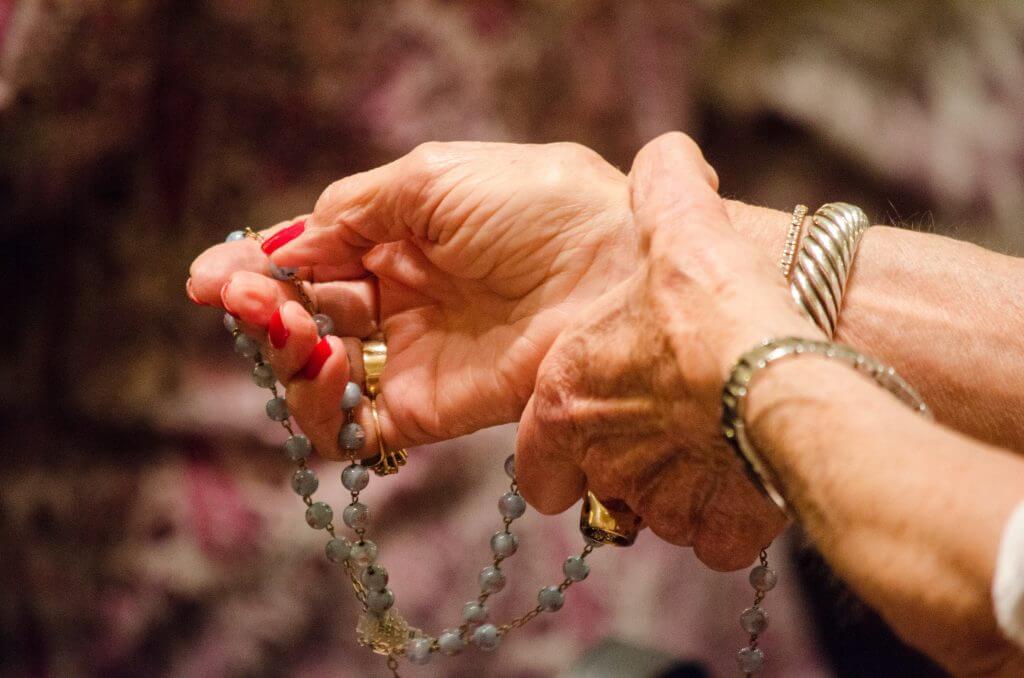Years ago, my friend had a roommate, Katie, who liked to say God told her things.
This included advice for her friends’ personal lives. “I just really feel like God is telling me you need to go to this church,” she’d say. Or dump this boyfriend. Or prepare yourself for marriage.
Maybe Katie meant well, but it always came across as patronizing. It presupposed that my friend didn’t have her own personal relationship with God and needed someone to tell her what to do. Of course, no one likes being told how to live their life. But when you claim that God Himself passed along the message, it gets even weirder.
My friend had to wonder: If God wanted me to know this, why did he tell you instead of me?
Eventually, Katie met a guy and fell for him. Within a few months, her pattern repeated. She informed her boyfriend that God told her they were supposed to get married. “You need to talk to God about it,” Katie assured him.
It didn’t seem to matter that their year-long courtship was constantly filled with drama. There’s drama in the Bible, right? And God told her, so it must be His will.
Soon, Katie and her guy married. The bouts of drama continued. They fought over finances and when to start a family. After a few years, she had a baby, but it didn’t ease the resentment and frustration he felt toward Katie, and she toward him.
Just a few days ago, Katie called my friend. Sadly, Katie announced that she and her husband have separated and are divorcing. My friend’s heart broke for her, but it didn’t come as a surprise. The writing was on the wall years ago. Everyone back then saw it. It just took 10 years for reality to do its tragic work.
Does Katie still believe that God told her she was supposed to marry the man who has now moved out of their house and filed for divorce? I don’t know.
But that’s the danger of putting ourselves in God’s place.
It seems Katie wanted to have a Christian fairy tale narrative of her life. This meant a special walk with God, a perfect marriage, motherhood, health, and financial success.
It’s not that God doesn’t want the best for us. But it seems Katie perhaps suffered from a spiritual hubris. She enjoyed feeling she received exclusive Divine revelations that others weren’t privy to. She took pride in “ministering” to her friends who obviously needed her advice. She put words in God’s mouth.
It has happened to me too. On a couple of occasions, someone has said God told them to tell me something. I thanked them, but I was skeptical.
Maybe sometimes we do need a special message from God. I’m not denying it happens.
When I’m trying to stay open to God, I can be as mystical as I am cynical. But I also believe God generally speaks to each of us personally, inwardly, without the need for a constant prophet.
If we want to know God’s will for our lives, we don’t need a roommate who’s an exclusive conduit between the Almighty and us.
We can search the Bible for ourselves, attend Mass, and have fellowship with other humble believers. We can pray. The Catholic tradition also recommends having a wise spiritual director. All these things can keep us from error and guide our lives on a healthy path.
Micah 6:8 tells us:
“You have been told, O mortal, what is good, and what the LORD requires of you: Only to do justice and to love goodness, and to walk humbly with your God.”
That is great guidance. If we are doing these things, living in love as we follow Christ, we can trust God will guide us.
Katie never gave her relationship time to develop naturally. Maybe it never would have, and that would have been her answer from God. Maybe she could have avoided a lot of heartache and a broken marriage.
We are not God, so we should be careful never to presume to know His mind exactly, much less to tell someone else.
This hit home for me years ago when I worked as a production assistant on the TV show Touched By An Angel. Each episode, an angel would speak a special message to the troubled guest character of the week. The angel would start by saying: “God wants you to know…”
One day, one of the scriptwriters confessed: “Every time I sit down to write that speech, I stop myself. How can I write these words? Who am I to speak for God?”
This was coming from an atheist writer. But he “got it.” He intuitively understood the humility we should feel before the Divine.
In the end, we must be careful not to speak for God. He will give us all the direction we need if we seek Him humbly. And there’s more good news. It’s never too late—for Katie or any of us—to change, seek God, and watch Him pick up and restore the shattered pieces of our lives. I do believe that’s what He wants for Katie and for you and for me.
Let’s take the Scripture’s advice:
“Be swift to hear, but slow to answer” (Sirach 5:11).
“Humble yourselves before the Lord and he will exalt you” (James 4:10).


